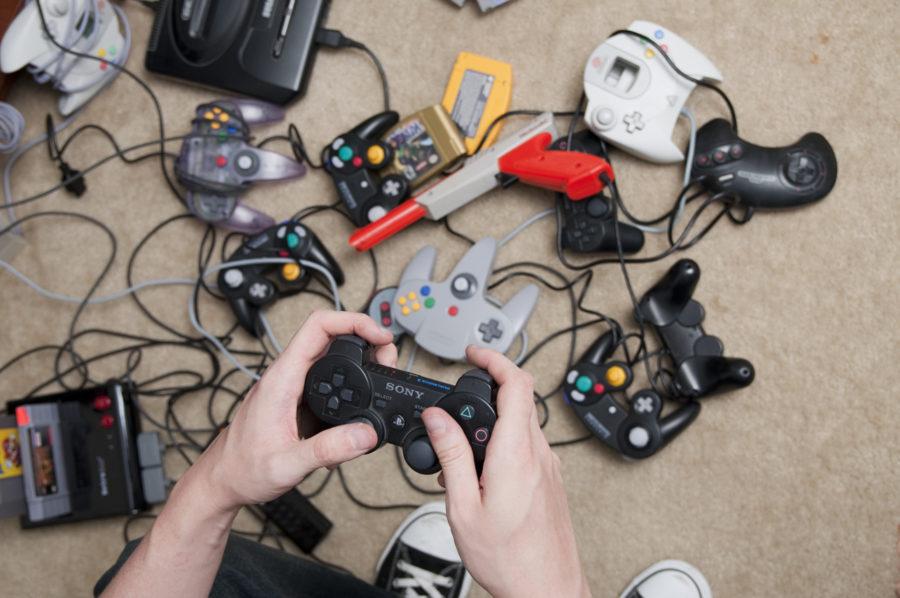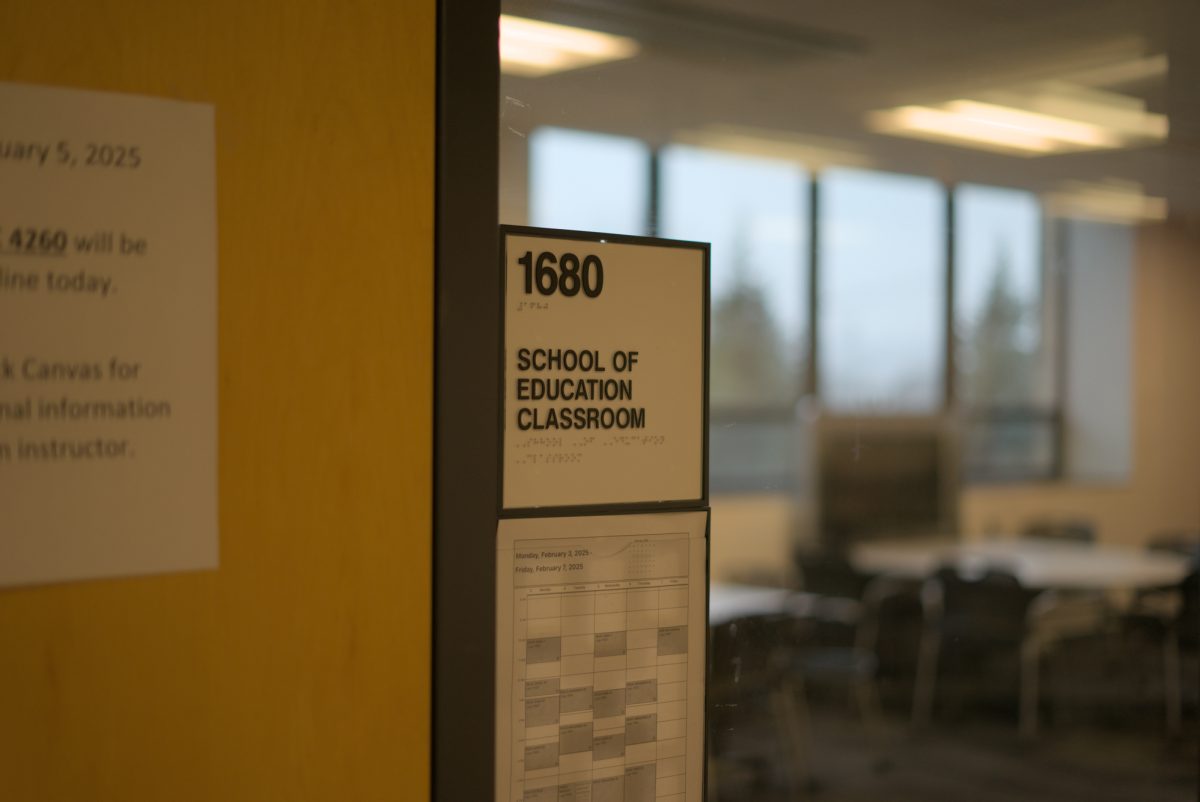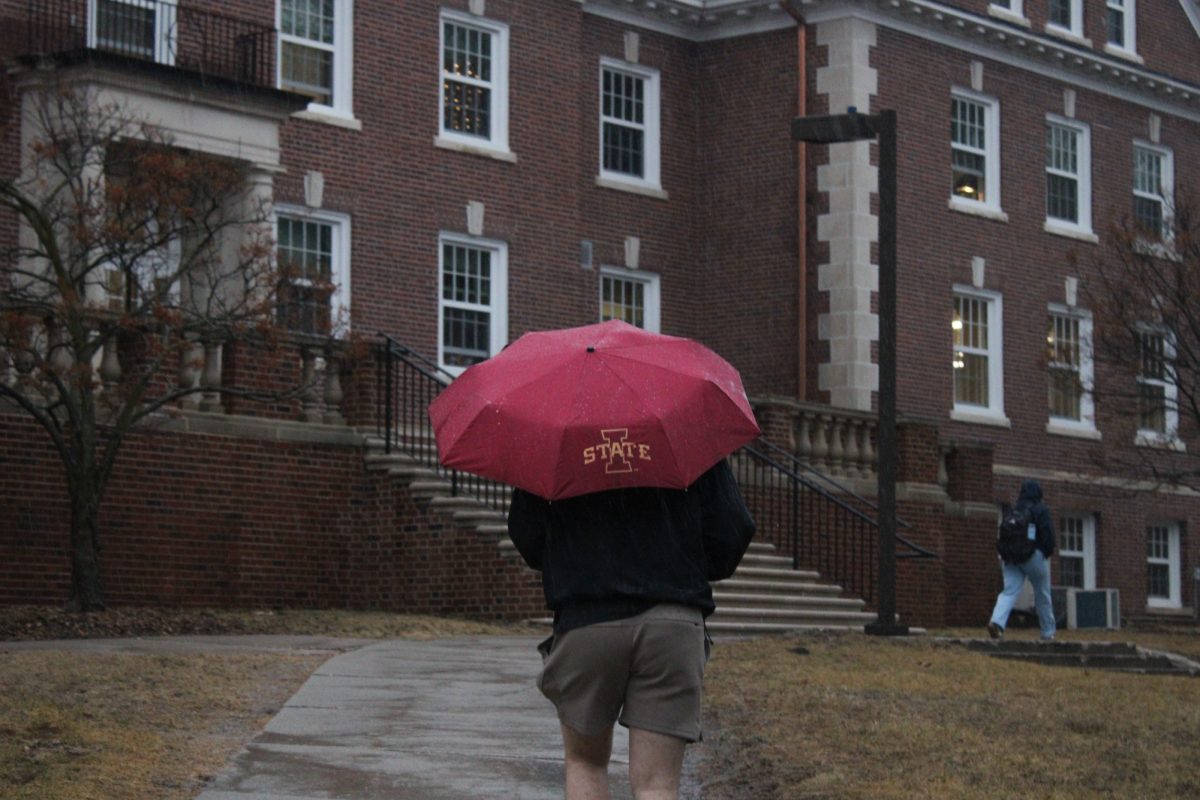Iowa State is seeking to embrace the future of gaming and artificial intelligence (AI) through the creation of a new student competition to envision a future video game realm in which civilization has been reshaped by artificial intelligence.
The event aims to challenge students and promote skills in research, critical thinking, writing and collaboration. The competition entails an award ceremony, cash prizes and the opportunity to engage with a prominent figure in the video game industry.
Kelli Fitzpatrick, a graduate student studying English, was selected as a research assistant tasked with orchestrating the competition, conceived by Volker Hegelheimer, chair of the English department.
“Last summer, Volker Hegelheimer, Chair of the English Department, got a special Strategic Initiative grant from the Office of the President to fund a series of projects exploring AI and the humanities,” John Monroe, history professor and faculty director to the competition said. “The Strategic Initiative grant funding meant we’d be able to offer prize money, hire a research assistant to help run things, and bring in an outside judge.”
Fitzpatrick will be work alongside Monroe to design the competition, host workshops and help advertise the event to students.
“It’s really meant to be an opportunity for students to look ahead and to create something fun while also showcasing their research skills,” Fitzpatrick said.
Monroe created the idea for a Worldbuilding after Volker suggested that it might be a good idea to set up some sort of student competition. Monroe believed his idea could draw student interest following the approval of Iowa State’s new game design major, which is currently in development across several groups of faculty including Monroe’s own history department.
“Once we’d settled on that, my colleague Jeremy Best connected me with Kelli Fitzpatrick, a graduate student who’s an experienced writer of role-playing game modules, and we were off to the races,” Monroe said.
The competition involves groups of two to six students working together to construct a sourcebook, similar to the setting of a role-playing board game or a video game. Using their research and imaginative prowess, students are encouraged to depict the imagined impact of AI on a world’s politics, culture and society. The competition is limited to currently registered undergraduates of all majors.
Fitzpatrick will conduct two workshops for students aimed to help students learn more about the parameters of competition and create their final team portfolios. The first seminar will be held in person Jan. 31 and the second virtually Feb. 1. All teams are encouraged to attend as Fitzpatrick will walk students through how the competition works, provide examples of sourcebooks and answer any questions about the research and submission processes. Final portfolios are set to be due April 1.
Winners will be announced at the awards ceremony held in April. The winning team of the inaugural Iowa State Worldbuilding Competition will receive $750. Second place will receive $250. The ceremony will also include a masterclass from Dallas Dickinson, a video-game industry leader who has worked as a designer for games such as “World of Warcraft,” “Star Wars: The Old Republic,” and the “Tomb Raider” franchise. Dickinson currently serves as General Manager and executive producer at Crystal Dynamics, where he is in charge of the “Tomb Raider” franchise in all aspects, including both games and film.
In addition to the competition serving as a fun experience for friends to get together and express their creativity, the event also seeks to promote professional skills in research and critical thinking.
“As an educator here, I think it is really important that students get opportunities to apply their learning outside of class environments on things that allow a lot of choice and creativity like this sort of competition—that’s because students get to literally create their own world,” Fitzpatrick said.
Fitzpatrick emphasized that she hopes to see students get creative and have fun with the competition.
“We’re looking for something that sounds like it would be a fun world to play in, and so part of what they have to create is some story hooks of events that might take place if you were going to play a game in this world to give us an idea of where the little interesting corners of this world that players could explore if it were to be a real game,” Fitzpatrick said.
Monroe also believes that the competition has great potential to help students develop real world skills and promote critical thinking.
“That’s what I’m hoping this competition will do: give students a chance to use their ‘humanities brains’ imaginatively, playing with ideas instead of working with them,” Monroe said. “In addition, the competition will give students a chance to explore an important aspect of game design in a collaborative situation where the goal is less about getting a good grade and more about creating a satisfying work of art.”
While this year’s event serves as the inaugural competition, Fitzpatrick expressed that she hopes for it to become an annual event and expand it even further in the future.
“I really encourage students to give this a shot, even if they don’t feel like they have strong research skills and aren’t really sure where to start,” Fitzpatrick said. “As the event facilitator, I’m going to be very available to answer questions for students and help them along the way. We just want to get students thinking and engage with them, so we really do encourage everyone to apply.”
Students can register a team for the competition through the Google form found on the English department website.














